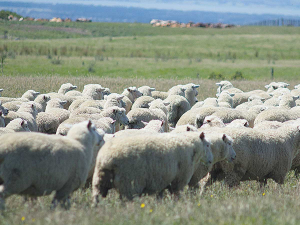DairyNZ chair wants cross-party deal
New DairyNZ chair Tracy Brown says bipartisan agreement among political parties on emissions pricing and freshwater regulations would greatly help farmers.
 A sheep and beef farmer says he is staring down a $200,000 bill for greenhouse gas emissions unless he gets carbon credits for the trees planted on his farm.
A sheep and beef farmer says he is staring down a $200,000 bill for greenhouse gas emissions unless he gets carbon credits for the trees planted on his farm.
As the reality begins to kick in for farmers about the costs for mitigating agricultural greenhouse gas emissions, one farmer has told Rural News he could face a $200,000 bill in the future, unless he gets carbon credits for the trees planted on his farm.
Former Meat and Wool NZ director Tom Mandeno, who has served in several high profile leadership roles in the primary sector over many years, runs a 670 hectare sheep and beef property, near Port Waikato, on the west coast of the North Island. He says it would be very hard to find an extra $200,000 in his farming operation to pay such a bill.
To that end, Mandeno has put forward a remit to the Beef + Lamb NZ (B+LNZ) annual meeting being held on March 24. The remit calls for B+LNZ to support the inclusion of established trees as vegetation sequestration offsets, to be included in the greenhouse gas emissions calculation required for farm environment plans.
"If a pine tree can sequester carbon, surely a poplar or oak tree or a native tree - such as kauri and rimu and other native trees that people have fenced off on their farms - should also be included," he told Rural News.
"These trees are sequestering carbon and the farmers are not getting any credit, which I think is unfair."
Mandeno says when he became aware of the GHG emissions issue and how it might impact on his farm he sought the professional help of B+LNZ's Hamilton-based extension manager, Maria Shanks. She looked over his property, did the calculations, and found that the farm was emitting 2,497 tonnes of carbon.
However, what staggered Mandeno the most was that despite all the native trees and other plantings - such as poplar poles and willows - on his farm, he is only entitled to a credit of just 17 tonnes.
"On that basis we face a potential bill of $200k for carbon," he says.
Mandeno says this figure is based on the cost of carbon being set at the rate of $100 per tonne.
He says it is presently valued at $85 a tonne, but he expects this to rise in the coming years. He realises that initially the cost of carbon will be discounted but says this won't last forever and, from a budgeting point of view, the $100 tonne figure is realistic.
"That being the case, a lot of farmers will face very challenging times trying to meet that cost. I don't know how we are going to be able to pay for this," he says.
"It seems we are the only country in the world that is charging farmers emissions in this way."
Arable growers worried that some weeds in their crops may have developed herbicide resistance can now get the suspected plants tested for free.
Fruit growers and exporters are worried following the discovery of a male Queensland fruit fly in Auckland this week.
Dairy prices have jumped in the overnight Global Dairy Trade (GDT) auction, breaking a five-month negative streak.
Alliance Group chief executive Willie Wiese is leaving the company after three years in the role.
A booklet produced in 2025 by the Rotoiti 15 trust, Department of Conservation and Scion – now part of the Bioeconomy Science Institute – aims to help people identify insect pests and diseases.
A Taranaki farmer and livestock agent who illegally swapped NAIT tags from cows infected with a bovine disease in an attempt to sell the cows has been fined $15,000.

OPINION: The release of the Natural Environment Bill and Planning Bill to replace the Resource Management Act is a red-letter day…
OPINION: Federated Farmers has launched a new campaign, swapping ‘The Twelve Days of Christmas’ for ‘The Twelve Pests of Christmas’ to…